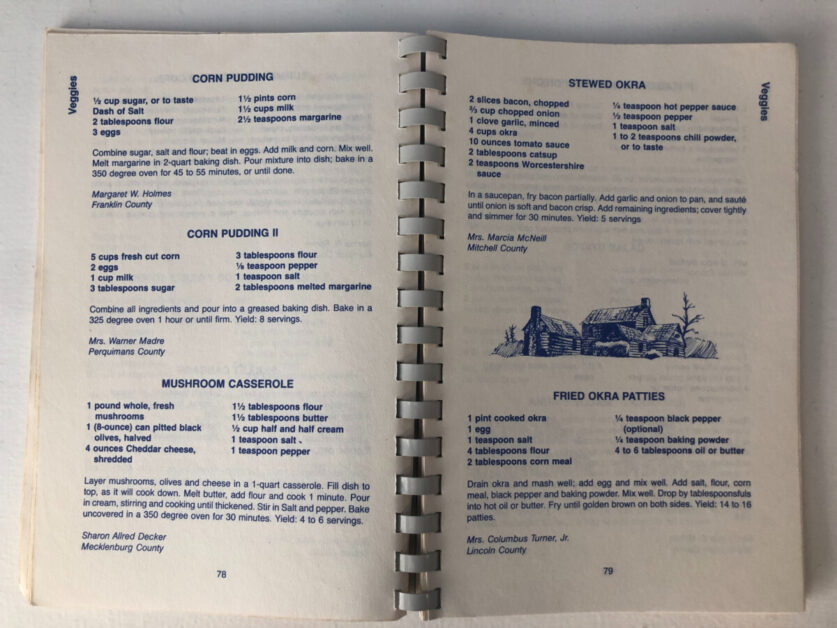Liz Konopka, former UNCG student employee, shares how her experience working at SCUA prepared her for a position as collection manager for a museum
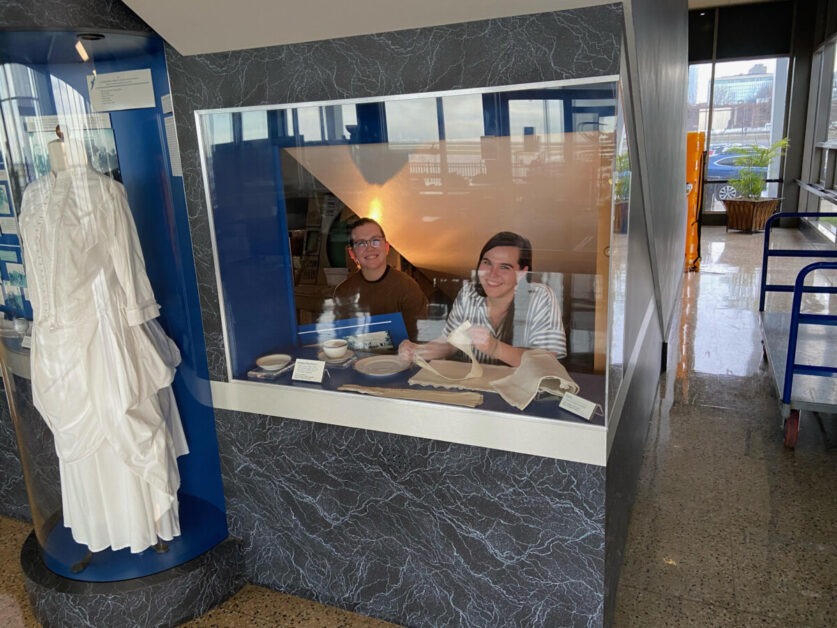
As the Collections Manager for the International Women’s Air & Space Museum, every day is new and exciting. I’m currently managing a complete inventory and rehousing project for our collections, funded by a National Endowment for the Humanities grant. We have an estimated 20,000 items in the collection, ranging from a landing gear from Amelia Earhart’s Lockheed Vega to a flight suit belonging to Nicole Malachowski, the first female demonstration pilot for the U.S. Air Force Thunderbirds. On a day-to-day basis, I update and maintain our exhibit cases, give tours, and facilitate researcher visits. I also help with our special programs like Dinner with a Slice of History, where we bring in speakers such as Casey Grant, one of Delta Airlines’ first Black female flight attendants.
Working in SCUA helped me immensely because it gave me a foundation in collections management and the best ways to make items accessible to researchers. I learned how to take full inventory, how to efficiently organize manuscripts, and how to store items for easy access and best preservation. All of these skills are vital to my day-to-day as a Collections Manager, and I would not be here with the experience gained in SCUA.
Photo: One of our summer interns helps me inventory the linens on display in our Katharine Wright exhibit.
Adrienne Johnson, current student at UNCG, writes about her capstone experience in SCUA
My Work With UNCG’s North Carolina Community Cookbook Collection
By Adrienne Johnson
In this, my final semester in the University of North Carolina Greensboro’s Master of Library and Information Sciences program, I am participating in my Capstone Experience at the Martha Blakeney Hodges Special Collections and University Archives. For this Capstone, I am lucky to be working with UNCG’s collection of North Carolina Community Cookbooks, for which I will be creating a LibGuide, StoryMap, and information table. These projects will appear in the next newsletter.
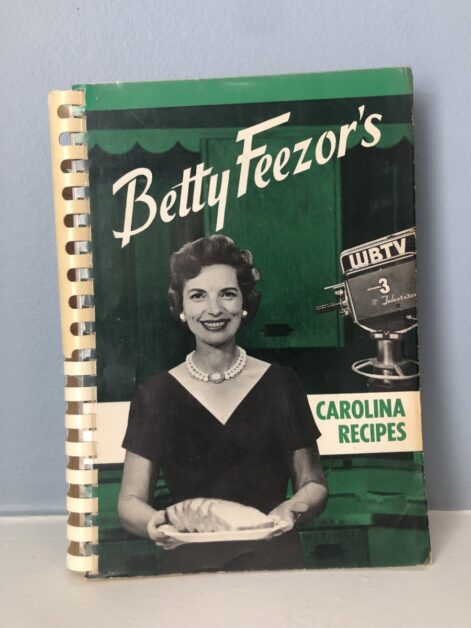
The collection began with a donation made by Foy Allen Edelman of over 2000 cookbooks which she gathered from counties all across North Carolina. Edelman’s enthusiasm for community cookbooks encouraged others to donate their North Carolina-related cookbooks, and the variety of civic organizations included really took off.
When I first heard of this collection, the thought of working with over 2000 undigitized books was daunting- with only four hours a week at the UNCG campus, I did not know how I was going to properly represent the wide selection of materials. However, once I realized that approaching the collection with my own plan of what I wanted to find in the books was not realistic, the books began to reveal their history, patterns, similarities and differences. The books spoke, and my pages began to follow.
The intangible cultural heritage found in these surviving cookbooks is unique and precious, not documented anywhere else. From these pages one can observe the changes in available food, cookware, financial constraints, health ideas, immigration, technology and so much more. I continue to learn North Carolina history including Women’s Suffrage, life pre- and post- WWII in different parts of the state, and about day-to-day life in the mountains, piedmont, coastal plains, and tidewater regions. I look forward to everything I still have to learn, and everything I will be able to share upon the completion of this project.
Surry Sonker is a popular dessert from the North Carolina mountains. My LibGuide has a page dedicated to this the Surry Sonker Trail, which identifies the restaurants and bakeries where this delicacy can be found. I was inspired to make my own black and blueberry sonker, shown below:
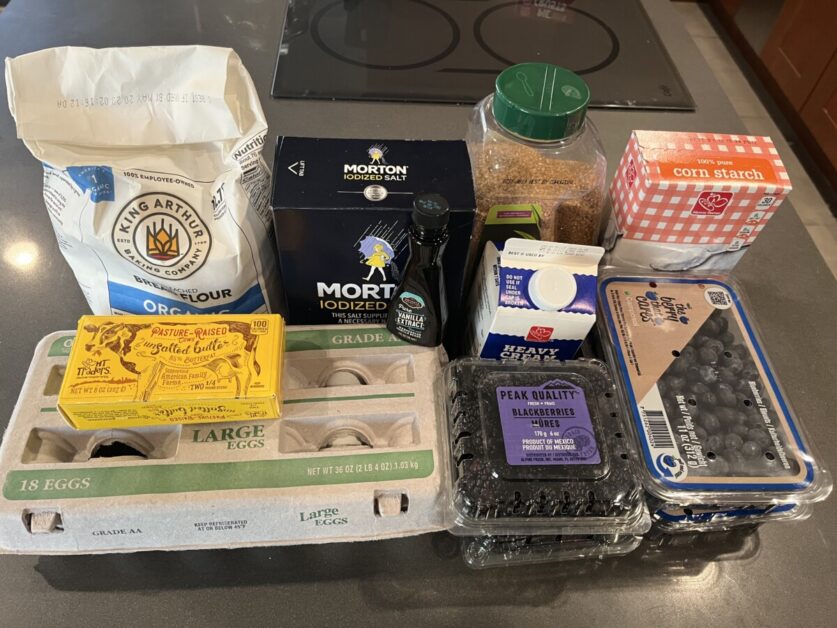
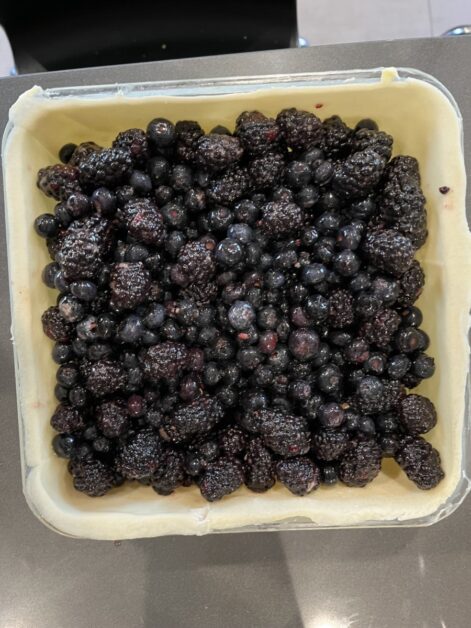
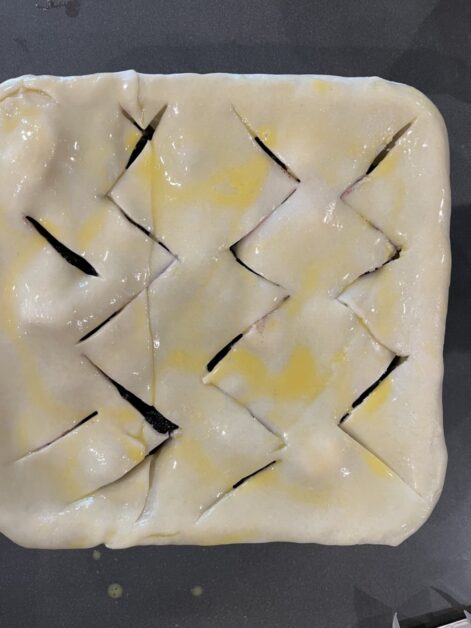
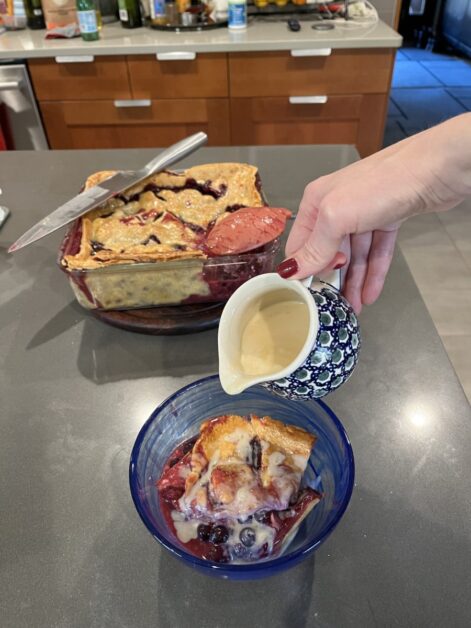
Fried okra is a prominent theme in these North Carolina cookbooks. As I work on this project, I have been cooking popular recipes from the cookbooks. Fried okra patties are up next!
